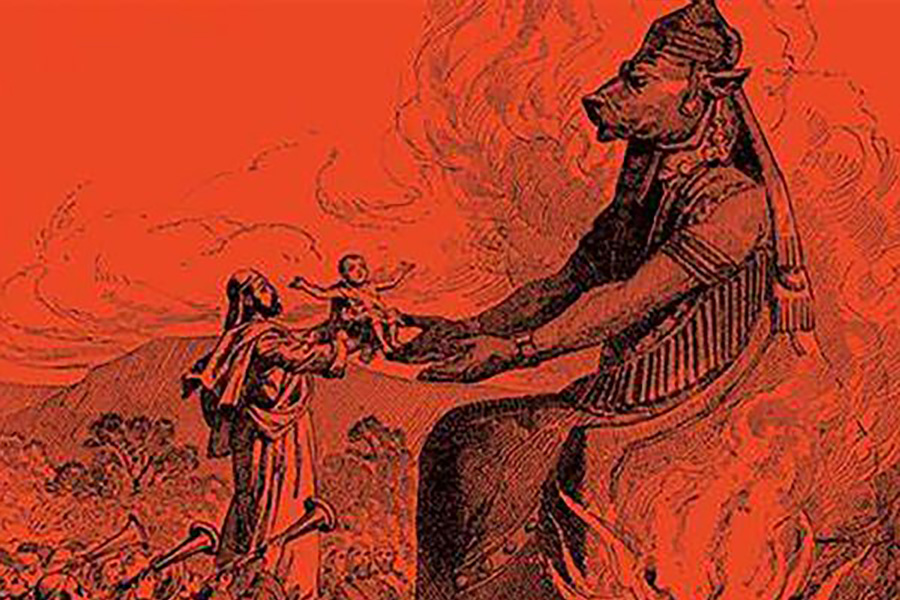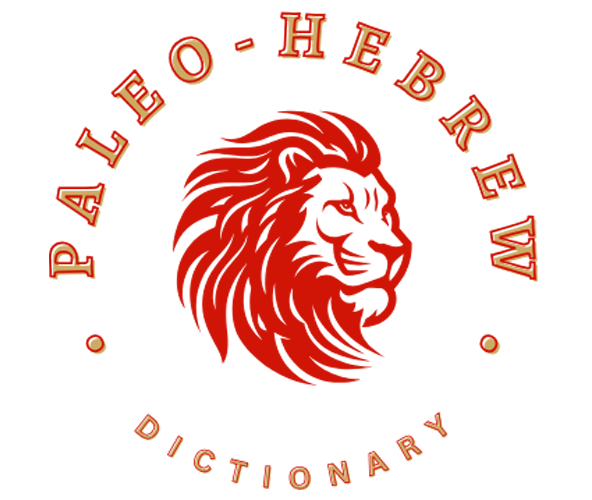The word malak (𐤌𐤋𐤊) means “king” meaning a male sovereign or monarch; the chief authority over a country and people.
The Paleo-Hebrew language or the original language of the Ābarayam is one spoken with an emphasis on the rauakh (breath, wind, spirit). With the language of the Ābarayam, each letter has a meaning and a number associated with it that adds meaning to each word they’re used with. Below you will be able to learn more about the letter in Ancient Hebrew, Yiddish Hebrew, Greek, and much more.
Letter Meanings
| Letter | Meaning |
|---|---|
| 𐤌 (m) – ma | Water, Chaos, mighty, liquid, massive, sea, blemish Prefix: from, of, from inside, than, more than, without, because of, due to, for |
| 𐤋 (l) – la | staff, goad, control, toward, protect, authority, bind, yoke, lead |
| 𐤊 (k) – ka | palm of the hand, to open, tame, subdue, bend, curve |
| Ābarayat Number | |
| Hebrew Gematria | |
| English Gematria | |
| Simple Gematria |
Based on the meaning of the letters the word could be defined as:
- “mighty authority (power) to subdue”
- “mighty protection of subdued”
- Combines Ma and Lak
- From around
- From nearly
- From negotiate
- From go (start)
- Of around
- Of nearly
- Of negotiate
- Of go (start)
- More than around
- More than nearly
- More than negotiate
- More than go (start)
Definitions for 𐤌𐤋𐤊 / malak
| Language | Word | Transliteration | Pronunciation | Definition |
|---|---|---|---|---|
| Ābarayat | 𐤌𐤋𐤊 | malak | ma-lak | king, consult, royal, advice |
| English | king | king | king | a male sovereign or monarch; |
| Hebrew | מֶלֶךְ | melek | meh’-lek | king, consult, advice |
| Arabic | ملك | malik | mal-ee-k | king, property, monarch, possession, sovereign, ownership |
| Greek | βασιλεύς | basileus | bas-il-yooce’ | a king, ruler, but in some passages clearly to be translated: emperor. |
The Heathen God
In English, the name is translated to Molek, Molech, or Moloch. The scriptures strongly condemn practices that are associated with Moloch, especially that of child sacrifice. Traditionally, Moloch has been understood as referring to a 𐤊𐤍𐤏𐤍𐤉 (Kanaānay) god. The activity of causing children “to pass over the fire” is mentioned, without reference to Moloch, in numerous other verses of the scriptures, but refers to the same thing.
However, some scholars have debated whether or not the term refers to a type of sacrifice on the basis of a similar term, also spelled mlk, which means “sacrifice” in the Punic language. Moloch has often been portrayed as a bull-headed idol with outstretched hands over a fire; this depiction takes the brief mentions of Moloch in the scriptures and combines them with various sources, including ancient accounts of Carthaginian child sacrifice and the legend of the Minotaur.
Some scholars have proposed that Moloch may be the same god as Milcom, Adad-Milki, or an epithet for Baāl. Some connect Moloch with a deity Mlk attested at Ugarit and Malik attested in Mesopotamia and proposes that he was a god of the underworld, as in Mesopotamia Malik is twice equated with the underworld god Nergal.
Also, 𐤉𐤔𐤏𐤉𐤄 (Yashaāyah) seems to associate Moloch with 𐤔𐤀𐤅𐤋 (Shaual). The Ugaritic deity Mlk also appears to be associated with the underworld, and the similarly named Phoenician god Melqart (literally “king of the city”) could have underworld associations if “city” is understood to mean “underworld.” There was also possibly an Akkadian term maliku referring to the shades of the dead.
Images for 𐤌𐤋𐤊 / malak


Definitions for /
When adding the 𐤉 (yad) to the end of a word, it creates a possessive of the original word. It can either signify “my…” or identify a member of a nation. For example, 𐤏𐤁𐤓 (Ābar) is the progenitor, but 𐤏𐤁𐤓𐤉 (Ābaray) is the singular descendant of him also known as a Hebrew.
| Language | Word | Transliteration | Pronunciation | Definition |
|---|---|---|---|---|
| Ābarayat | ||||
| English | ||||
| Hebrew | ||||
| Arabic | ||||
| Greek |
Images for /


Definitions for /
When adding the 𐤌 (mayam) after the 𐤉 (yad) to the end of a word, it creates a plural of the original word. It can identify multiple members of a nation. For example, 𐤏𐤁𐤓 (Ābar) is the progenitor, but 𐤏𐤁𐤓𐤉𐤌 (Ābarayam) are the plural descendants of him also known as Hebrews.
| Language | Word | Transliteration | Pronunciation | Definition |
|---|---|---|---|---|
| Ābarayat | ||||
| English | ||||
| Hebrew | ||||
| Arabic | ||||
| Greek |
Images for /


Definitions for /
When adding the 𐤕 (tau) after the 𐤉 (yad) to the end of a word, it creates a plural of the original word. It identifies the language or a sign of a nation’s existence. For example, 𐤏𐤁𐤓 (Ābar) is the progenitor, but 𐤏𐤁𐤓𐤉𐤕 (Ābarayat) is the language of him also known as Paleo-Hebrew language.
| Language | Word | Transliteration | Pronunciation | Definition |
|---|---|---|---|---|
| Ābarayat | ||||
| English | ||||
| Hebrew | ||||
| Arabic | ||||
| Greek |
Images for /


Classification
You can continue your studies of the words by viewing Strong’s entries for:




